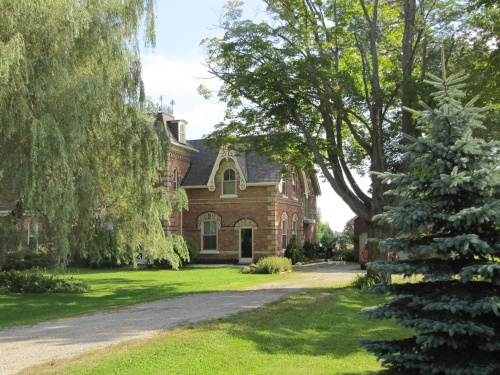In a recent comment, on a very old post (“5 Ways to Make (or lose) Money With Investment Properties – Part 5 – Buying at a Discount”), Awesome asks “i live in Toronto, how and where do I find the deals”. I found this a perplexing question, as the assumption seems to be that there’s a website, or a very simple technique, which leads to low priced real estate. The obvious follow up to this is you buy from the cheap market, sell on the regular market, then start lighting your cigars with $100 bills. I pointed him to my posts on inefficient markets and Mike’s post on valuing real estate but never heard from him again (I guess he’s off searching for the “simple”, “easy” way). I also told him that if someone knew where a deal was, they’d just do it themselves (and make the money themselves). If they knew a good approach for consistently finding deals, they’ll execute that strategy themselves (and not make it harder by advertising it and drawing competition). Between these three posts I felt like there’s still some missing information, so this post is my attempt to fill in that gap.
In “How to Buy Real Estate For At Least 20% Below Market Value” John Reed talks in the beginning about how he never saw a bargain purchase in his years as a real estate agent (not even 5% below market value). At the time he thought they didn’t exist (and thought people who claimed they did were selling snake oil). Once he looked into it, he found they did exist, just that they never showed up in the “official” (MLS) channels.
He summarizes the two ways to buy at a discount (for goods which are USUALLY traded on an efficient market):
- properties which no one wants and
- properties which no one knows are for sale
The impact of these principles is that you can’t buy ANY property at a discount (there’s no way to get a 20% discount on that cute little bungalow you have your heart set on), but you can buy MANY properties at a discount. It’s like dating: if you’ve got your heart set on dating Mary Jones or Johnny Smith you’re sunk. HOWEVER, if you just want to date someone (who meets some reasonable minimum criteria) there are ways to make it VERY LIKELY that you’ll be able to get dates. Sadly (or happily), romance can be a numbers game.
One way to find deals is to hunt for desperate sellers (they’d fit into the “no one knows are for sale” category). One approach to this is to make low-ball offers on many items, and try to find the person who needs to sell quickly (and can’t take the time to advertise properly and let all interested buyer know it’s available). I detail this process in my “Shotgun Investing” post (and is also how I bought my investment condo). I still giggle when I read Mike’s description of a “for sale by owner” sign (that might have been a big tip off that they’re desperate sellers)
Another way to find deals is to hunt for what Reed calls “leper properties”. These are properties that have something about them that causes most buyers and agents to immediately dismiss it as a potential purchase. Properties with foundation problems are an example of this. I was suspicious that there might be an opportunity for buying co-ops (as opposed to condominiums) in Toronto because of this. My agent told me not to even bother looking at co-ops, which IMMEDIATELY got my interest. This is the “no one wants” category.
Obviously for a leper property you must have some way to fix the problem (for less that the amount of the discount), otherwise you’re just buying someone else’s problem.
In my home town (around the corner from my parents) there’s a property that at one time was the nicest in the neighbourhood. It was on a double lot, and was far bigger than the properties around it. The owners let it get really run down and then were trying to sell it. It sat on the market for a LONG time, and EVERYONE in town had heard how run-down it was. Eventually someone bought it, and immediately started a massive renovation. I don’t know what the purchase price was, but they’re fools if they paid anything close to market (it was a property no one wanted).
Not Easy
One other factor with discount purchases is they aren’t as easy as buying on the market. If you buy the typical way, everything is set up to make it as straightforward as possible. As soon as you start buying in an unusual way (such as either of these approaches), the risk is going to go up and the difficulty is going to go up. You’ll put time into a deal, then have it fall through at the last minute (or you’ll try 10 deals and have them all fall through). Part of a reasonable approach to discount purchases is to be as efficient as possible in evaluating when a deal may occur, and dumping prospects IMMEDIATELY when it looks unlikely (so you can put your time into pursing a deal that has a higher chance of going through). Many people don’t have the stomach for this (and will get angry if a deal doesn’t work out) and they’ll abandon their strategy because of the emotional toll.
Have you seen situations (real estate or other) where a good price has been had for one of these two reasons?
